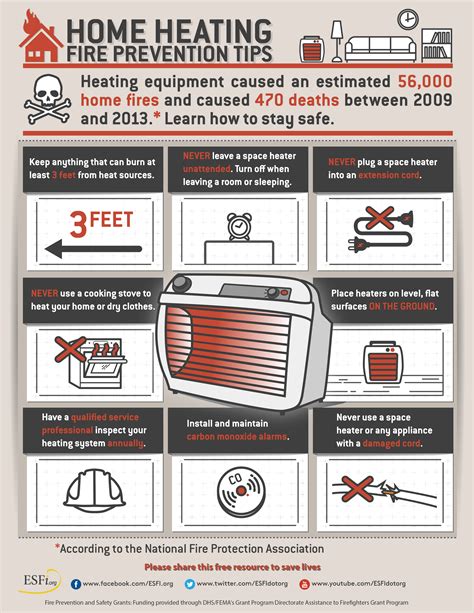Prevent a House Fire: Patio Heater Safety Guide
Enjoying the crisp autumn air or extending summer evenings with a patio heater is a delight, but safety should always be the top priority. Improper use of patio heaters can lead to devastating house fires. This guide will equip you with the knowledge to prevent such tragedies and enjoy your outdoor space safely.
What are the Common Causes of Patio Heater Fires?
Patio heater fires often stem from a combination of factors, but some common culprits include:
- Flammable Materials Nearby: Placing the heater too close to curtains, furniture, overhanging branches, or even dry grass significantly increases the risk of ignition. The heat radiating from the heater can easily ignite these materials.
- Malfunctioning Equipment: Damaged gas lines, faulty electrical wiring, or worn-out components can cause sparks, leaks, or overheating, leading to a fire. Regular inspection and maintenance are crucial.
- Improper Fuel Handling: Mishandling propane or other fuels, such as leaks during refilling or incorrect storage, creates a high risk of fire. Always follow the manufacturer's instructions meticulously.
- Leaving the Heater Unattended: Never leave a patio heater unattended, especially when fueled by propane or natural gas. A sudden gust of wind could topple it, potentially igniting flammable materials.
- Overheating: Some heaters may overheat if obstructed or used for extended periods without proper ventilation.
How to Safely Use a Patio Heater: A Step-by-Step Guide
Following these steps minimizes the risk of a house fire:
- Choose the Right Location: Place the heater far away from any flammable materials. Ensure ample clearance from structures, vegetation, and furniture. Check for any overhanging branches that could potentially catch fire.
- Inspect Before Each Use: Carefully check the heater for any signs of damage, including frayed cords (electric heaters), leaks (gas heaters), or rust. Replace damaged parts immediately.
- Follow Manufacturer Instructions: Read and follow the manufacturer's instructions thoroughly. This includes guidelines on fuel type, assembly, operation, and maintenance.
- Proper Fuel Handling: If using a propane heater, store the propane tank upright in a well-ventilated area, away from heat sources and direct sunlight. Never overfill the tank. If using a natural gas heater, ensure the gas line is properly connected and free of leaks.
- Supervise Children and Pets: Never leave children or pets unattended near a patio heater. The heat can cause burns, and curious children or pets might accidentally knock it over.
- Turn it Off When Not in Use: Always switch off the heater when not in use or when leaving the area, even for a short time.
- Regular Maintenance: Regularly inspect and clean your heater according to the manufacturer's recommendations. This will help identify potential problems early on.
- Use a Protective Cover: When not in use, cover the heater with a protective cover to shield it from the elements and prevent damage.
What Should I Do if I See a Fire?
If a fire starts, immediately:
- Evacuate the area: Get everyone away from the heater and the immediate surroundings.
- Call emergency services: Dial your local emergency number (911 in the US, 999 in the UK, etc.) immediately.
- Do not attempt to extinguish the fire yourself unless you're trained to do so. Using water on a grease or electrical fire can be extremely dangerous.
What Type of Patio Heater is Safest?
While all patio heaters have inherent risks, electric heaters are generally considered safer than propane or natural gas heaters due to the absence of flammable fuel. However, even electric heaters can pose fire hazards if misused or damaged. Always choose a model from a reputable manufacturer and ensure it's properly grounded.
How Often Should I Inspect My Patio Heater?
Before each use is ideal. Additionally, a thorough inspection at the start and end of each heating season is recommended. This includes checking for any signs of damage, leaks, or rust.
Can I Use My Patio Heater in Enclosed Spaces?
No. Never use a patio heater in an enclosed space, such as a garage, porch, or tent. The build-up of carbon monoxide can be fatal. Patio heaters are designed for outdoor use only.
By following these safety guidelines, you can enjoy the warmth and ambiance of your patio heater while minimizing the risk of a house fire. Remember, safety is paramount. A little precaution goes a long way in ensuring a safe and enjoyable outdoor experience.

